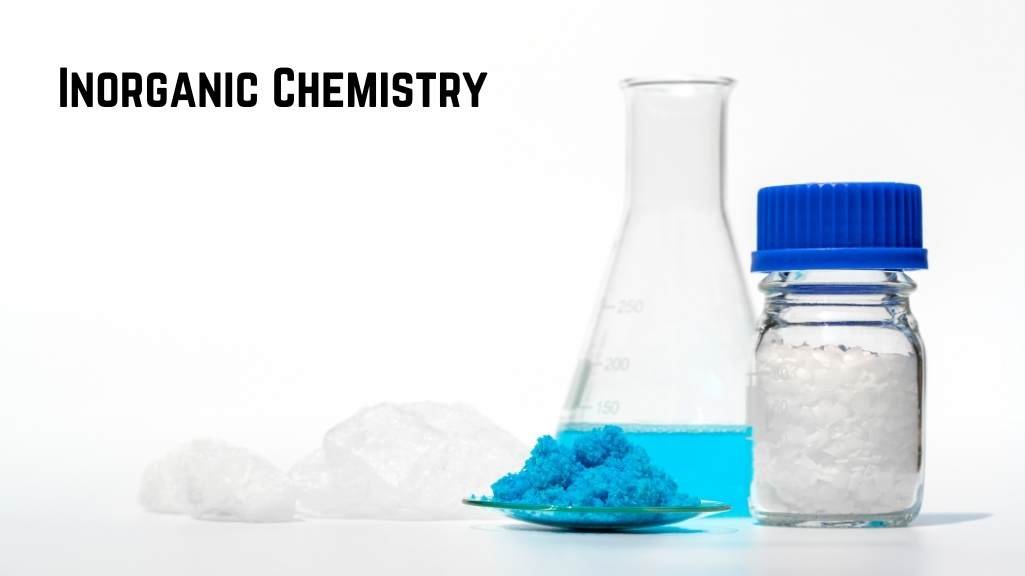Exploring the Fascinating World of Inorganic Chemistry
Vikash Jain
. 2 min read
In the vast field of chemistry, inorganic chemistry stands as a cornerstone, focusing on the study of inorganic compounds, which encompass elements other than carbon. While organic chemistry traditionally focuses on carbon-based compounds, inorganic chemistry delves into the properties, behavior, and reactions of non-carbon compounds, including metals, minerals, and nonmetals. Whether you're a student exploring the basics or a researcher delving into advanced topics, this article aims to demystify inorganic chemistry and provide a comprehensive understanding through clear explanations, illustrations, and even video chat sessions with experts in the field.

Key Principles and Concepts of Inorganic Chemistry
- Inorganic Compound Classification: Inorganic compounds are categorized into several groups, including salts, acids, bases, coordination compounds, and organometallic compounds. These classifications help in understanding their properties and reactivity.
- Atomic Structure and Bonding: Inorganic chemistry investigates the fundamental principles of atomic structure, electronic configurations, and bonding theories. Topics such as ionic bonding, covalent bonding, and metallic bonding are explored to comprehend the nature of chemical interactions in inorganic compounds.
- Coordination Chemistry: Coordination compounds are a vital aspect of inorganic chemistry. This field examines the formation and properties of complexes formed by a central metal ion or atom surrounded by ligands. It involves the study of coordination numbers, isomerism, chelation, and the stability of complexes.
- Main Group Chemistry: Main group elements, found in the s-block and p-block of the periodic table, are studied extensively in inorganic chemistry. The behavior, reactivity, and compounds of elements such as hydrogen, boron, carbon, nitrogen, oxygen, and the noble gases fall under this domain.
- Transition Metal Chemistry: Transition metals and their compounds are of great interest in inorganic chemistry. Their unique electronic configurations and variable oxidation states make them versatile catalysts and play crucial roles in industrial processes. The study of transition metal complexes, organometallic compounds, and their applications form a significant part of this field.
Applications of Inorganic Chemistry
- Materials Science: Inorganic chemistry contributes to the development of advanced materials with diverse applications. Researchers study the synthesis, properties, and characterization of materials such as ceramics, semiconductors, superconductors, and nanomaterials, enabling breakthroughs in electronics, energy storage, and catalysis.
- Environmental Chemistry: Understanding inorganic compounds' interactions with the environment is essential for addressing environmental challenges. Inorganic chemists investigate the behavior of pollutants, heavy metals, and their impact on ecosystems. They develop methods for water treatment, air pollution control, and sustainable energy solutions.
- Pharmaceutical and Medicinal Chemistry: Inorganic compounds play a significant role in pharmaceutical and medicinal applications. Chemists design and study inorganic complexes for drug delivery, imaging agents, and therapeutic treatments. Metals such as platinum and gold are used in cancer therapies, while radiopharmaceuticals utilize radioactive isotopes for diagnostic purposes.
Recent Advancements of Inorganic Chemistry
- Single-Atom Catalysis: Inorganic chemistry has witnessed advancements in the field of catalysis, with the discovery and characterization of single-atom catalysts. These catalysts, consisting of isolated metal atoms on supports, exhibit enhanced activity, selectivity, and stability, offering potential breakthroughs in various industrial processes.
- Energy Storage: Inorganic chemistry plays a vital role in the development of next-generation energy storage technologies. Researchers are exploring new materials, such as metal-organic frameworks (MOFs) and perovskites, for applications in batteries, supercapacitors, and solar cells, aiming for higher efficiency and sustainability.
- Functional Inorganic Materials: Inorganic chemists are actively involved in designing functional materials with unique properties. Examples include phosphors for lighting applications, magnetic materials for data storage, and catalysts for renewable energy production. Tailoring the composition and structure of these materials enables precise control over their properties.
Conclusion
Inorganic chemistry encompasses a broad range of compounds, elements, and applications that contribute to our understanding of the world around us. From exploring the intricate bonding in coordination compounds to designing advanced materials for sustainable technologies, inorganic chemistry continues to drive innovation and scientific progress. Its interdisciplinary nature allows for collaboration with other branches of chemistry and related fields, opening new avenues for exploration and discovery.
More Stories from
Understanding AC and DC: The Fundamentals of Electric Power
This article provides a concise overview of Alternating Current (AC) and Direct Current (DC), the two fundamental types of electrical power.
A Look into the Ethical Dilemmas of Biotechnology and Genetic Engineering
This article delves into the ethical dilemmas arising from biotechnology and genetic engineering. It explores the complex issues surrounding genetic editing, GMOs, gene patenting, informed consent, and reproductive technologies.
The Mysteries of the Brain: Recent Discoveries in Neuroscience
From the brain's remarkable adaptability to the profound link between the gut and brain, explore the cutting-edge findings shaping our understanding of cognition and behavior.
Defense Advanced Research Projects Agency (DARPA): Pioneering Innovation in Defense Technology
This article provides a concise overview of the Defense Advanced Research Projects Agency (DARPA), its mission, and its key contributions to revolutionizing defense technology.
The Science of Happiness: Exploring Factors and Cultivating a Happier Life
This article explores the fascinating science of happiness, delving into the factors that contribute to our well-being.






.png?width=40&aspect_ratio=1:1)

.png?width=40&aspect_ratio=1:1)




